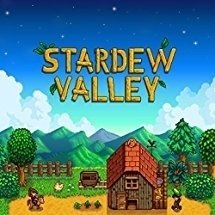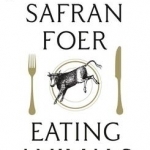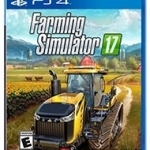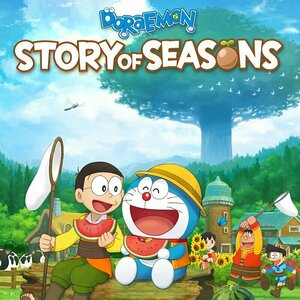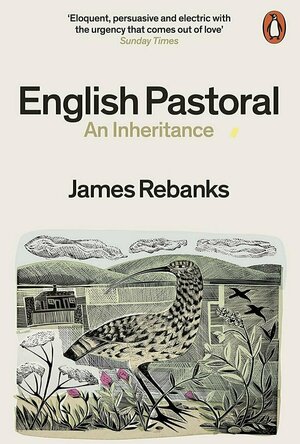Search
Search results
Entertainment Editor (1988 KP) created a video about Pure Farming 2018 in Video Games
Oct 30, 2017
Natalie (102 KP) rated Stardew Valley in Video Games
Dec 20, 2017
Mothergamer (1616 KP) created a post
Jan 29, 2024
Entertainment Editor (1988 KP) created a video about Farmer Sim 2018 in Apps
Nov 22, 2017
Adam Stubbs (18 KP) rated the PC version of Stardew Valley in Video Games
Jul 3, 2019
Ivana A. | Diary of Difference (1171 KP) rated Hay Day in Apps
Jun 30, 2020
Amazing farming game - and one of the most popular ones, where you can actually find other people that play the game as well and join neighbourhoods.
If you love farming games with slow, but continued progress, you'll love this one. I have played it for over two years, and it never gave the impression that you have to spend in real life money to succeed and level up. (you can still pay real money to do this way faster than other regular players, as well as have more slots in your shops/entities)
If you love farming games with slow, but continued progress, you'll love this one. I have played it for over two years, and it never gave the impression that you have to spend in real life money to succeed and level up. (you can still pay real money to do this way faster than other regular players, as well as have more slots in your shops/entities)
Michael C. Hall recommended Eating Animals in Books (curated)
Marilyn (2 KP) rated Farming Simulator 17 in Video Games
Oct 25, 2017
It's a simple game of farming, graphics are almost like real but limited to vehicles and other farm equipment unless mods are downloaded it takes up a lot of memory
Mothergamer (1616 KP) rated the PlayStation 4 version of Doraemon Story Of Seasons in Video Games
Mar 7, 2021
A very charming crossover with Doraemon and Story of Seasons. You can play as Nobita from Doraemon and the farming mechanics will feel familiar because they are very much what is used in the Story Of Seasons games. The artwork is pretty looking like watercolor paintings and there's a lot of different things to do in the game ranging from farming to fishing to bug catching. You can celebrate festivals in each season and make friends with the villagers. It can feel a little slow in places, but the story and characters make you forget all that. You can read the full blog review here: http://mg28-mothergamer.blogspot.com/2021/03/mothergamer-plays-doraemon-story-of.html
Janeeny (200 KP) rated English Pastoral in Books
Sep 7, 2021
A love letter to Old English farming
English Pastoral is a beautiful love letter to traditional English farming.
Rebanks takes us through the journey of three generations on the farm in three parts. The first part talks about his childhood on the farm and his grandfather teaching him the ways of the land. The second part is Rebanks in his twenties, he’s experienced modern farming overseas and has ideas on how to move the farm forward, this includes using chemicals to protect the crops and enhance the livestock. Part three is Rebank’s time on the farm and their realisation that all they’ve been doing to keep up with modern farming has actually been having a counterproductive event.
It is a story of hope, a farming family brought to the brink of collapse that realise, in time, the real way forward can sometimes be backwards.
There is just too much goodness in this book to cover it all here. It’s beautifully written, it’s heartfelt and evocative. It pulls you into the pages, and I could have quite happily stayed living on that hardworking little farm on the fells.
There are some charming little anecdotes in this book, and the reverence with which Rebanks tells them is palpable. Rebanks is acutely aware of the contrast in farming techniques and frequently draws comparisons. From his grandfather gently moving a nest from one part of a field he’s cutting back (then moving in back again), to modern-day combines just hacking their way through a field regardless of the wildlife within.
This also re-affirms his grandfathers earlier statement that modern-day farmers sitting up in the cabs of their tractors have lost touch with the land.
This modern-way of farming doesn’t quite sit right with Rebanks and his father, they know that something is not quite right with the way they do things, but what else can they do to keep up with modern demands. The pivotal moment comes when Harry passes away. Harry is a local farmer of the same generation as Redbank’s grandfather, he’s stayed connected to the land and hasn’t gone in for all these modern ways. Another farmer who plans to buy the land gets the soil tested (in anticipation of what nutrients he may have to put into it) the soil inspector explains that the soil is healthy. In fact, it’s some of the best soil he’s ever seen.
This is when Rebanks begins to realise that the farmers themselves are the problem with the land. The ultimate irony that the very people who are supposed to be caring for the land are also the ones slowly destroying it.
Not only is this an exquisite little memoir, it is also a lesson on looking after the land. Rebanks lays it out as it is; in cold hard detail, this is what happened this is what he did about it. There is no preaching, but if we’re lucky we’ll learn something from it
Rebanks takes us through the journey of three generations on the farm in three parts. The first part talks about his childhood on the farm and his grandfather teaching him the ways of the land. The second part is Rebanks in his twenties, he’s experienced modern farming overseas and has ideas on how to move the farm forward, this includes using chemicals to protect the crops and enhance the livestock. Part three is Rebank’s time on the farm and their realisation that all they’ve been doing to keep up with modern farming has actually been having a counterproductive event.
It is a story of hope, a farming family brought to the brink of collapse that realise, in time, the real way forward can sometimes be backwards.
There is just too much goodness in this book to cover it all here. It’s beautifully written, it’s heartfelt and evocative. It pulls you into the pages, and I could have quite happily stayed living on that hardworking little farm on the fells.
There are some charming little anecdotes in this book, and the reverence with which Rebanks tells them is palpable. Rebanks is acutely aware of the contrast in farming techniques and frequently draws comparisons. From his grandfather gently moving a nest from one part of a field he’s cutting back (then moving in back again), to modern-day combines just hacking their way through a field regardless of the wildlife within.
This also re-affirms his grandfathers earlier statement that modern-day farmers sitting up in the cabs of their tractors have lost touch with the land.
This modern-way of farming doesn’t quite sit right with Rebanks and his father, they know that something is not quite right with the way they do things, but what else can they do to keep up with modern demands. The pivotal moment comes when Harry passes away. Harry is a local farmer of the same generation as Redbank’s grandfather, he’s stayed connected to the land and hasn’t gone in for all these modern ways. Another farmer who plans to buy the land gets the soil tested (in anticipation of what nutrients he may have to put into it) the soil inspector explains that the soil is healthy. In fact, it’s some of the best soil he’s ever seen.
This is when Rebanks begins to realise that the farmers themselves are the problem with the land. The ultimate irony that the very people who are supposed to be caring for the land are also the ones slowly destroying it.
Not only is this an exquisite little memoir, it is also a lesson on looking after the land. Rebanks lays it out as it is; in cold hard detail, this is what happened this is what he did about it. There is no preaching, but if we’re lucky we’ll learn something from it
